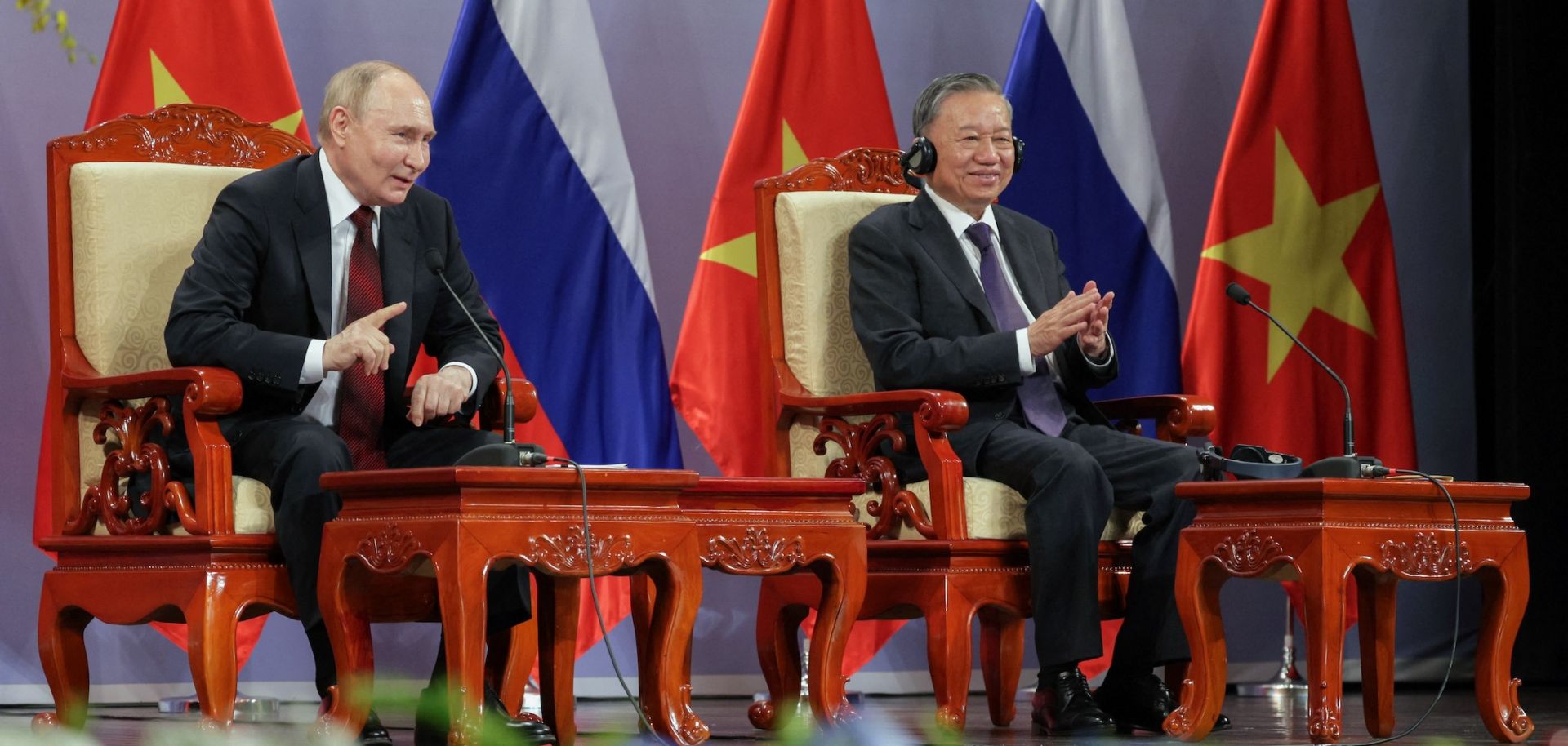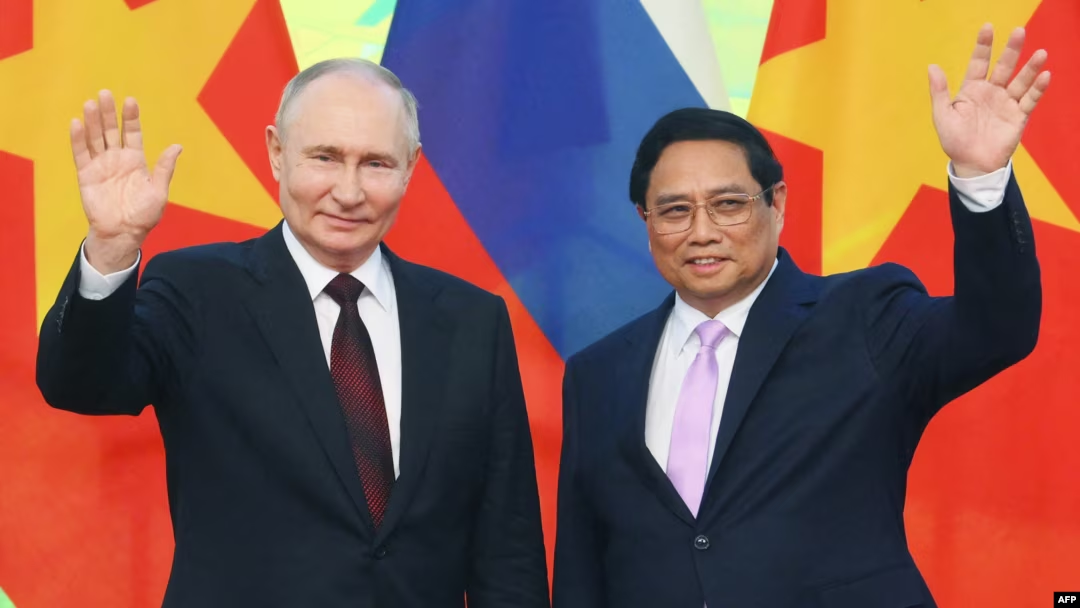Russia and Vietnam have committed to enhancing their relationship as Vladimir Putin arrived in Hanoi for a state visit aimed at demonstrating that Russia still has allies in the region.
Putin landed at Hanoi airport early Thursday morning, where he was greeted on a red carpet by Vietnamese Deputy Prime Minister Tran Hong Ha and senior party diplomat Le Hoai Trung.
This visit followed a high-profile trip to North Korea, where Putin and Kim Jong-un signed a defense agreement that includes a mutual defense clause.
Vietnamese President To Lam stated that the two nations seek to “enhance cooperation in defense and security, address non-traditional security challenges in accordance with international law, and promote peace and security in the region and globally.”
Putin’s visit has attracted criticism from the United States, one of Vietnam’s major trading partners, which has expressed concerns that the visit could legitimize Russia’s “blatant violations of international law.”
During the visit, Lam and Putin signed 11 memorandums of understanding covering various areas such as civil nuclear projects, energy, petroleum cooperation, education, and disease prevention.
Putin described the discussions as constructive and noted that both countries had “identical or very close” positions on major international issues.
They talked about establishing “a reliable and adequate security architecture in the Asia-Pacific based on principles of non-aggression and peaceful dispute resolution.”
In an opinion piece published in Vietnam’s Communist Party newspaper Nhan Dan to coincide with his visit, Putin highlighted progress in payments, energy, and trade between the two countries.
He also praised Vietnam for supporting “a pragmatic approach to resolving the crisis” in Ukraine. Vietnam has consistently abstained from UN General Assembly votes related to Russia’s war in Ukraine.

Vietnam’s leadership prefers a policy of “bamboo diplomacy,” which allows it to remain neutral in international disputes, including those involving Ukraine and the US-China rivalry.
Although Vietnam, a major manufacturing hub, has strengthened its ties with the US and its allies, including hosting US President Joe Biden and enhancing relations with Australia and Japan, it maintains a balancing act.
Analysts are skeptical about the tangible benefits of Putin’s visit for Vietnam, suggesting that it primarily reflects the historical ties between the two nations.
Russia has long been a friend to Vietnam, with many remembering Soviet support during past conflicts with France and the US. The Soviet Union was one of the first to establish diplomatic relations with Ho Chi Minh’s Vietnamese government.
Putin’s schedule includes meetings with Trong, who, like many Vietnamese officials, studied in the Soviet Union, as well as with Lam and Prime Minister Pham Minh Chinh. He is also set to participate in wreath-laying ceremonies, including at Ho Chi Minh’s mausoleum.
Despite strong historical and energy ties, Russia is not a major trade partner for Vietnam. Trade between the two countries was only $3.5 billion in 2022, compared to Vietnam’s $175 billion trade with China and $123 billion with the US.
Russia is a significant supplier of weapons to Vietnam, although arms transfers have decreased in recent years, particularly following Russia’s invasion of Ukraine.
Putin’s visit follows a summit in Pyongyang where he and Kim Jong-un signed a mutual defense pact. This agreement includes a clause for mutual assistance if either country is attacked, raising concerns in the West about potential Russian support for North Korea’s missile or nuclear programs.
The US State Department expressed “great concern” about the deepening ties between Russia and North Korea, while a top Ukrainian official accused Pyongyang of aiding Moscow’s “mass murder of Ukrainians.”
Prior to the visit, a US embassy spokesperson in Hanoi warned that no country should give Putin a platform to promote his aggressive actions or normalize his atrocities.


